
V. is a satirical postmodern novel and the debut novel of Thomas Pynchon, published in 1963. It describes the exploits of a discharged U.S. Navy sailor named Benny Profane, his reconnection in New York with a group of pseudo-bohemian artists and hangers-on known as the Whole Sick Crew, and the quest of an aging traveler named Herbert Stencil to identify and locate the mysterious entity he knows only as "V." It was nominated for a National Book Award.
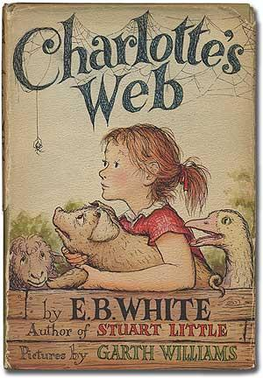
Charlotte's Web is a book of children's literature by American author E. B. White and illustrated by Garth Williams; it was published on October 15, 1952, by Harper & Brothers. The novel tells the story of a livestock pig named Wilbur and his friendship with a barn spider named Charlotte. When Wilbur is in danger of being slaughtered by the farmer, Charlotte writes messages in her web praising Wilbur, such as "Some Pig", "Terrific", "Radiant", and "Humble", to persuade the farmer to let him live.
Patrick McCabe is an Irish writer. Known for his mostly dark and violent novels set in contemporary—often small-town—Ireland, McCabe has been twice shortlisted for the Booker Prize, for The Butcher Boy (1992) and Breakfast on Pluto (1998), both of which have been made into films.

A Tree Grows in Brooklyn is a 1943 semi-autobiographical novel written by Betty Smith.
Emerald Germs of Ireland (2001) is a black comedy novel by Irish writer Patrick McCabe. Each chapter is begun with an Irish folk song.{{

Two Rode Together is a 1961 American Western film directed by John Ford and starring James Stewart, Richard Widmark, and Shirley Jones. The supporting cast includes Linda Cristal, Andy Devine, and John McIntire. The film was based upon the 1959 novel Comanche Captives by Will Cook.

The Sheep-Pig, or Babe, the Gallant Pig in the US, is a children's novel by Dick King-Smith, first published by Gollancz in 1983 with illustrations by Mary Rayner. Set in rural England, where King-Smith spent twenty years as a farmer, it features a lone pig on a sheep farm. It was adapted as the 1995 film Babe, which was a great international success. King-Smith won the 1984 Guardian Children's Fiction Award, a once-in-a-lifetime book award judged by a panel of British children's writers.

A Day No Pigs Would Die is a semi-autobiographical novel by Robert Newton Peck about Rob Peck, a boy coming of age in rural Vermont on an impoverished farm. Originally published in 1972, it is one of the first books to be categorized as young adult fiction, in addition to being Peck's first novel; the sequel, A Part of the Sky, was published in 1994.

Breakfast on Pluto is a 2005 comedy-drama film written and directed by Neil Jordan and based on the 1998 novel of the same name by Patrick McCabe, as adapted by Jordan and McCabe. The film stars Cillian Murphy as a transgender woman foundling searching for love and her long-lost mother in small town Ireland and London in the 1970s.

Incendiary is a 2008 British drama film portraying the aftermath of a terrorist attack at a football match. It is directed by Sharon Maguire and stars Michelle Williams, Ewan McGregor, and Matthew Macfadyen. It is about a suicide bombing at Emirates Stadium during an Arsenal F.C. match, and its aftermath in the life of a woman who loses her husband and young son in the attack. It is based on the 2005 novel Incendiary by Chris Cleave.

The Butcher Boy is a 1997 Irish black comedy film directed by Neil Jordan. The film was based on Patrick McCabe’s 1992 novel of the same name and McCabe co-wrote the screenplay with Jordan.
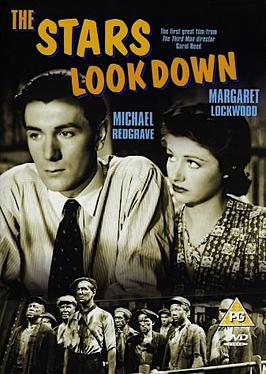
The Stars Look Down is a British film from 1940, based on A. J. Cronin's 1935 novel of the same title, about injustices in a mining town in North East England. The film, co-scripted by Cronin and directed by Carol Reed, stars Michael Redgrave as Davey Fenwick and Margaret Lockwood as Jenny Sunley. The film is a New York Times Critics' Pick and is listed in The New York Times Guide to the Best 1,000 Movies Ever Made.

The Queen's Gambit is a 1983 American novel by Walter Tevis, exploring the life of fictional female chess prodigy Beth Harmon. A bildungsroman, or coming-of-age story, it covers themes of adoption, feminism, chess, drug addiction and alcoholism. The book was adapted for the 2020 Netflix miniseries of the same name.
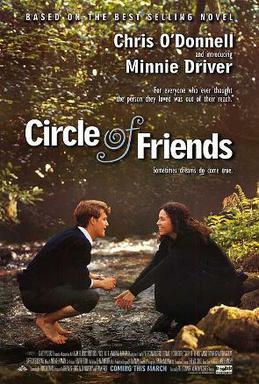
Circle of Friends is a 1995 film directed by Irish filmmaker Pat O'Connor, and based on the 1990 novel of the same name written by Maeve Binchy.
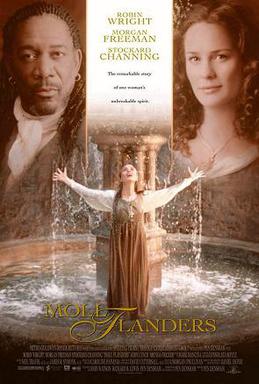
Moll Flanders is a 1996 American period drama film starring Robin Wright and Morgan Freeman, loosely based on the 1722 novel of the same name by Daniel Defoe. The film, which vastly differs from the original novel, was written and directed by Pen Densham. The original music score was composed by Mark Mancina.

The Real Glory is a 1939 Samuel Goldwyn Productions adventure film starring Gary Cooper, David Niven, Andrea Leeds and Broderick Crawford released by United Artists in the weeks immediately following Nazi Germany's invasion of Poland. Based on a 1937 novel of the same name by Charles L. Clifford and directed by Henry Hathaway, the film is set against the backdrop of the Moro Rebellion during the American occupation of the Philippines at the beginning of the 20th century. According to The World news broadcast on Aug 18, 2017, the US War Department withdrew the film in 1942. The Moros were US allies in World War II, and the film had inflammatory scenes including threatening a Muslim prisoner with burial wrapped in a pig skin.
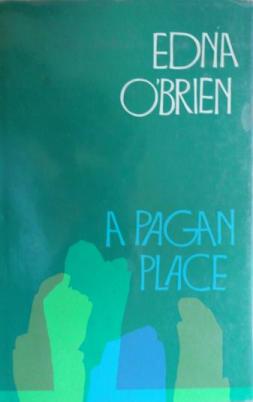
A Pagan Place is a 1970 novel by Irish writer Edna O'Brien. The book was first published on April 16, 1970, by Weidenfeld & Nicolson and follows a young girl in the 1930s and 1940s. In 1972 A Pagan Place was adapted into a stage production, which received mixed reviews.

Calling Dr. Kildare is a 1939 film in the Dr. Kildare series. Directed by Harold S. Bucquet, it stars Lew Ayres as the young Dr. Kildare and Lionel Barrymore as Dr. Gillespie, his mentor. The second of MGM's series of Kildare films, it introduces Laraine Day as nurse Mary Lamont, the love of Kildare's life.

The Real Charlotte is a novel by the Anglo-Irish writing partnership Somerville and Ross, composed of Edith Somerville (1858–1949) and Violet Florence Martin (1862–1915).

















